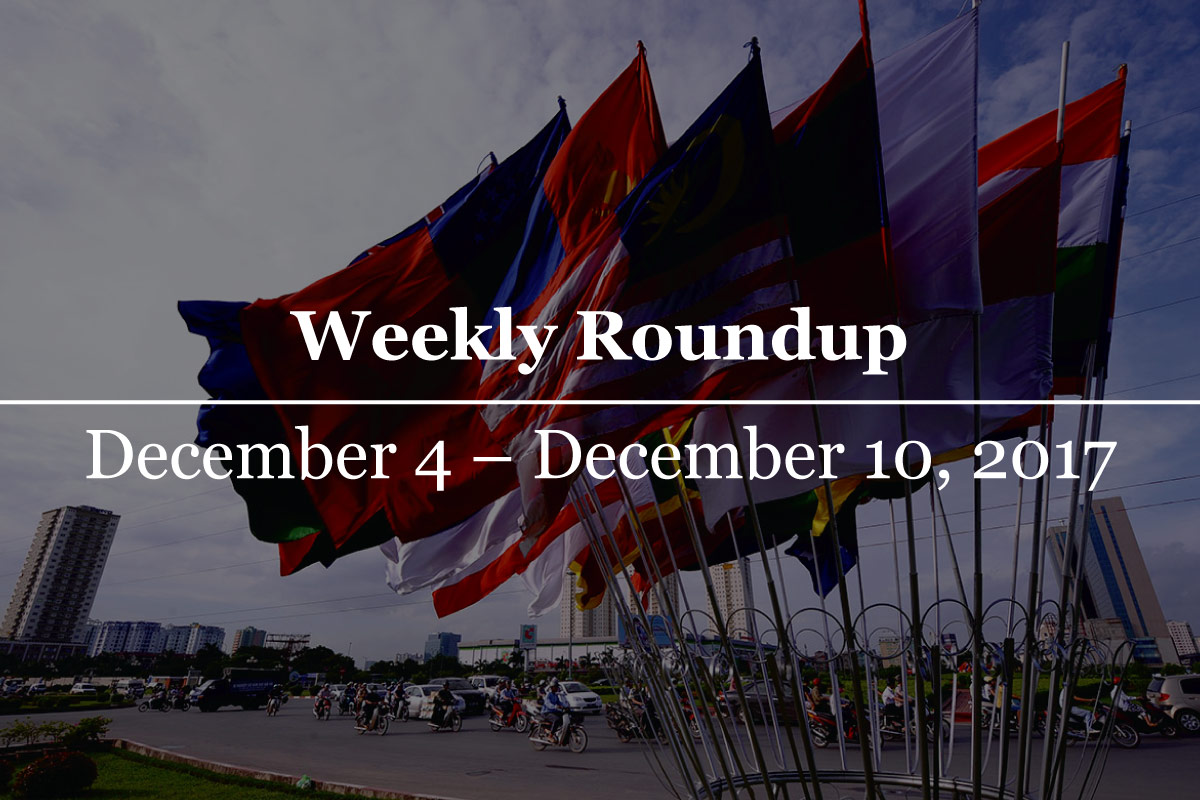Singapore’s 2018 ASEAN chairmanship
This week, Singapore announced its priorities going into 2018 as chairman of the Association of Southeast Asian Nations (ASEAN). Under the theme “Resilience and Innovation”, Singapore aims to develop an ASEAN smart cities network, stepping up cooperation on cybersecurity threats and bolstering business opportunities for small and medium enterprises (SME), among others.
Singaporean Foreign Minister, Vivien Balakrishnan announced the island nation’s aspirations at a lecture entitled ASEAN: Next 50 at the ISEAS – Yusof Ishak Institute.
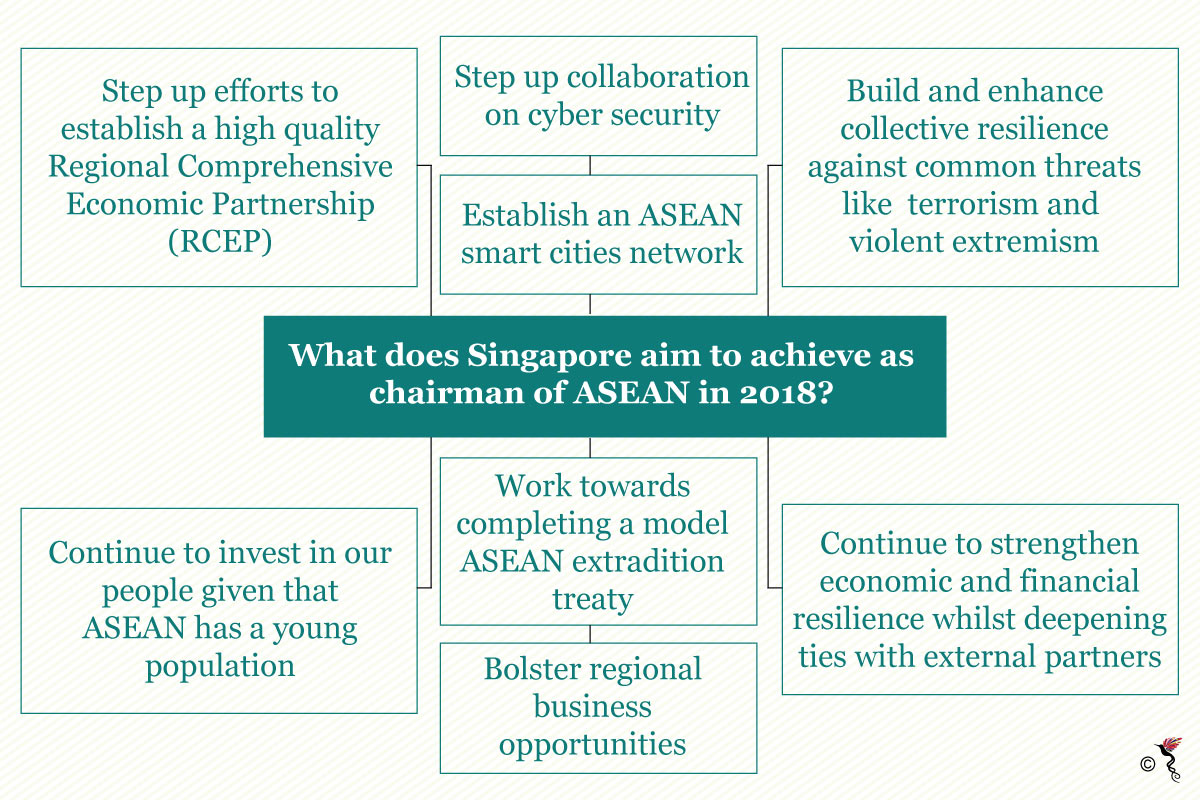
Expectations from Singapore's 2018 chairmanship of ASEAN.
All things ASEAN
Also covered this week by The ASEAN Post was the extent of ASEAN’s social integration and if citizens of the ten-member association feel like they are “ASEAN citizens.” One way to develop that “we” feeling is via the formation of social capital.
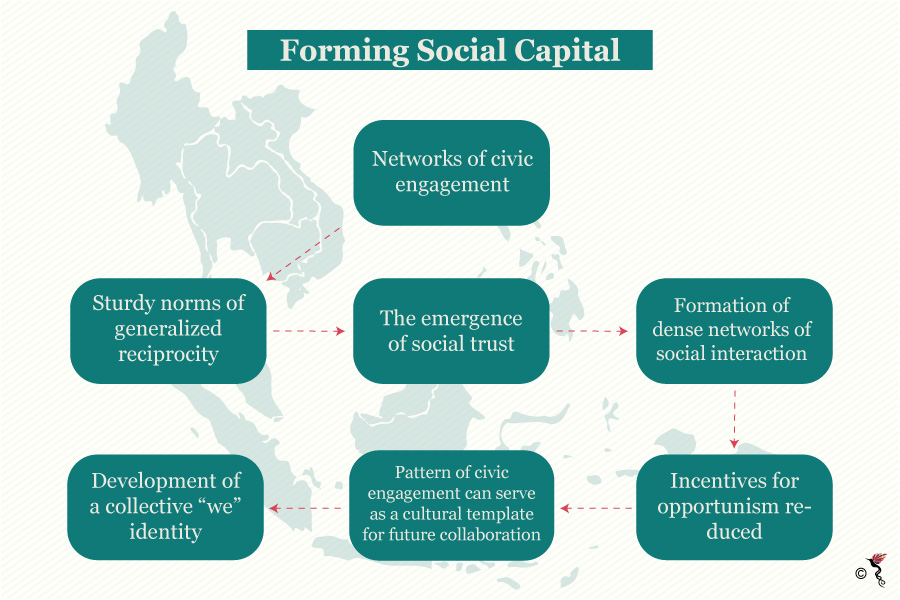
Formation of social capital according to Putnam.
The resurgence of scarlet fever in the region was also discussed. After years and years of decline, scarlet fever, the disease that once struck fear into the hearts of parents is once again hitting United Kingdom and some parts in Asia and in Southeast Asia, specifically Vietnam.
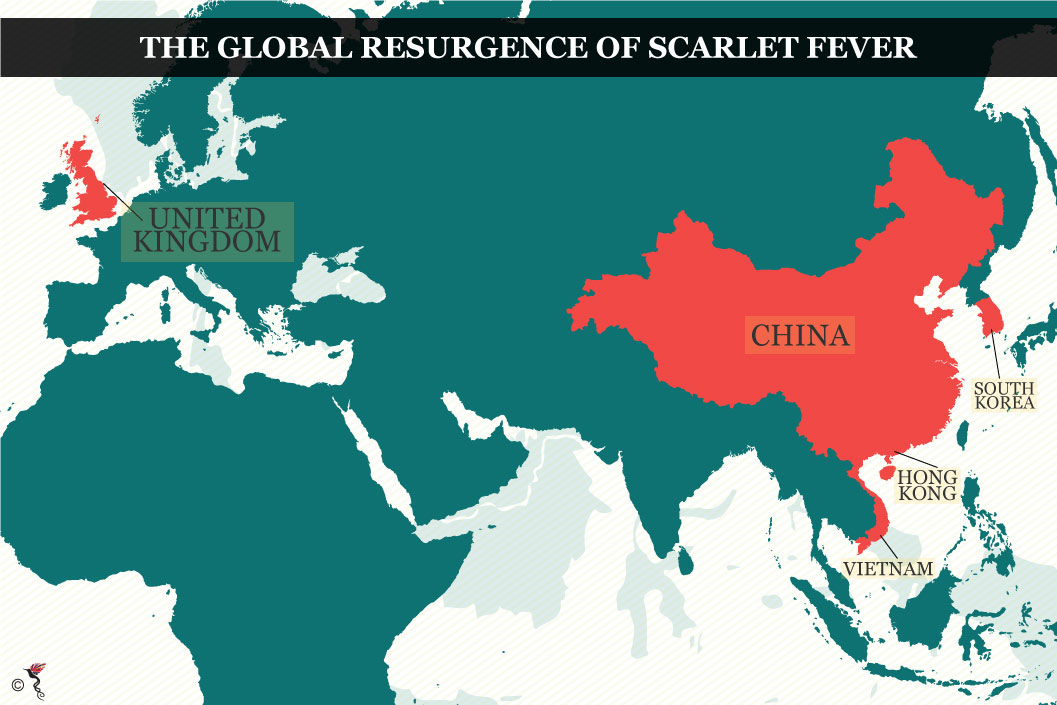
Global resurgence of Scarlet Fever.
The ASEAN Post also looked into the drug policies of Southeast Asian nations which have often been saddled with problems with drug-related crime mostly with trafficking and substance abuse.
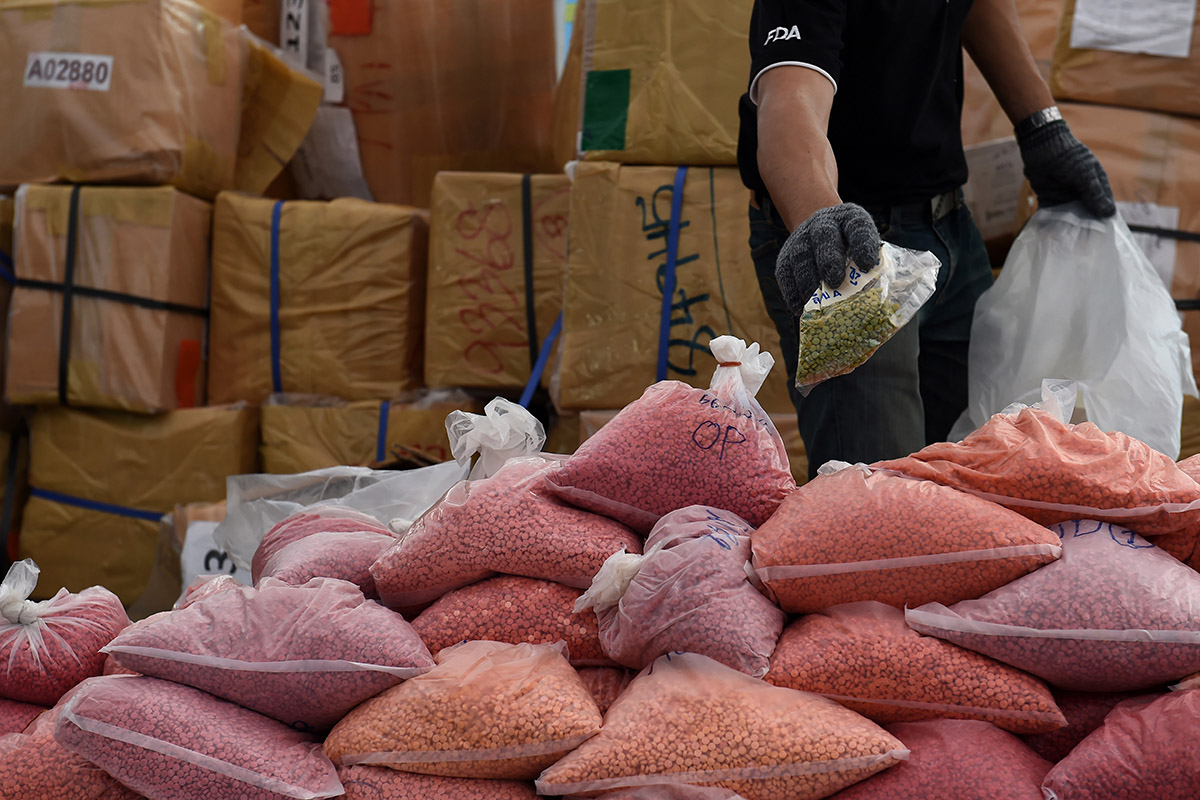
An employee from the Food and Drug Administration sorts out bags of methamphetamines before their incineration during the 47th Destruction of Confiscated Narcotics event by the Thai Government at Bang Pa-In Industrial Estate in Ayutthaya on June 26, 2017. (AFP Photo/Lillian Suwanrumpha)
In a bid to promote gender equality, ASEAN launched the HeforShe campaign aimed at raising awareness on gender equality in the ASEAN region by encouraging men and boys to act as agents of change to promote a culture of respect for women and girls.
Treating the environment right
The "Panthera tigris sumatrae" better known as the Sumatran tiger has been driven to the brink of extinction due to deforestation. Between 1990 and 2010, Sumatra lost nearly 40 percent of its primary forest.
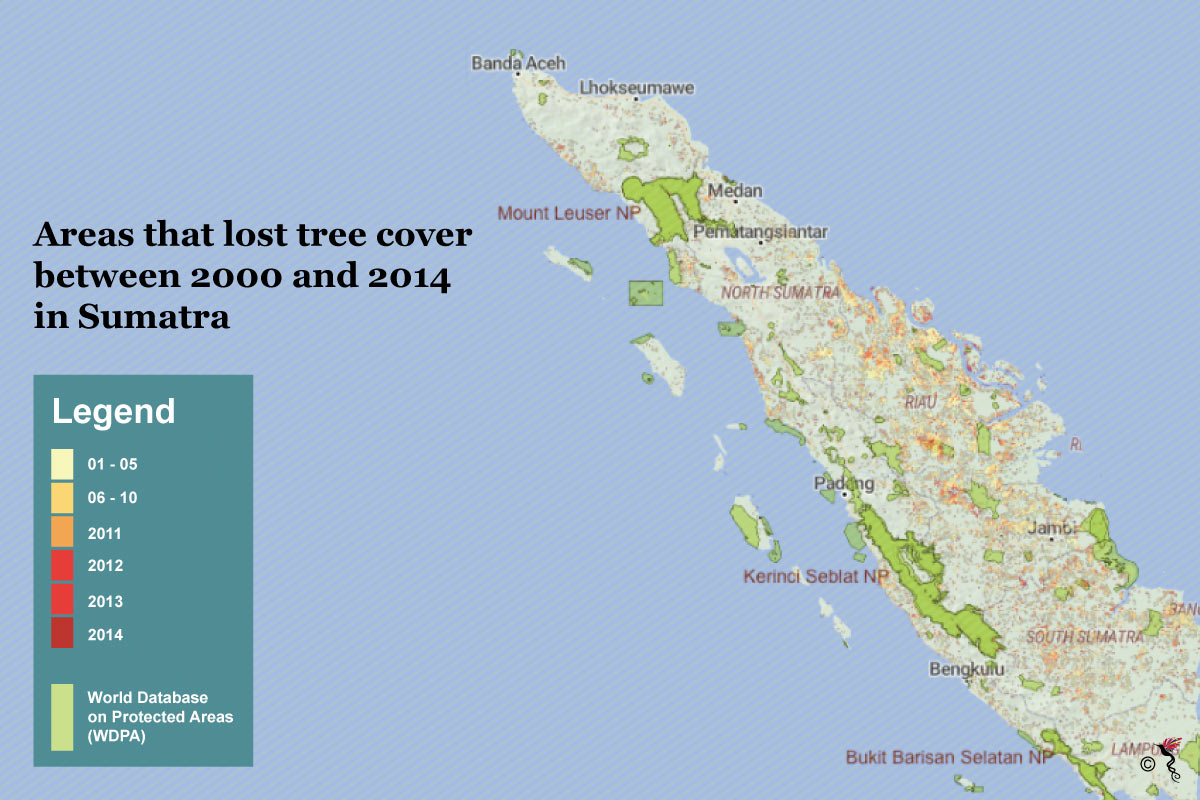
Areas that lost tree cover between 2000 and 2014 in Sumatra.
The reality for the Sumatran tigers is dark, if these activities do not end as there will surely be no place for the imposing carnivore on the face of the earth.

In this picture taken on October 23, 2013, shows a critically endangered Sumatran tiger walks in its enclosure at Ragunan Zoo in Jakarta, Indonesia. (AFP Photo/Romeo Gacad)
The ASEAN Post in collaboration with Mongabay also showcased a piece on Indonesian President Joko Widodo relinquishing control over nine tracts of forest to the indigenous communities that have lived there for generations.
The bad and ugly
The Rohingya continue to suffer in one of the worst humanitarian crisis in recent history. Recently, the United Nations Human Rights Council passed a resolution condemning the human rights violation in Myanmar. However, their plight will not be lessened by mere rhetoric. Will the Rohingya see better days?
Cambodian President, Hun Sen’s seems unstoppable as he continues to crackdown on his critics – relying largely on Chinese backing. Now, he is going after the Cambodian Center for Human Rights (CCHR), a leading human rights group, set up by embattled Cambodian opposition leader, Kem Sokha.
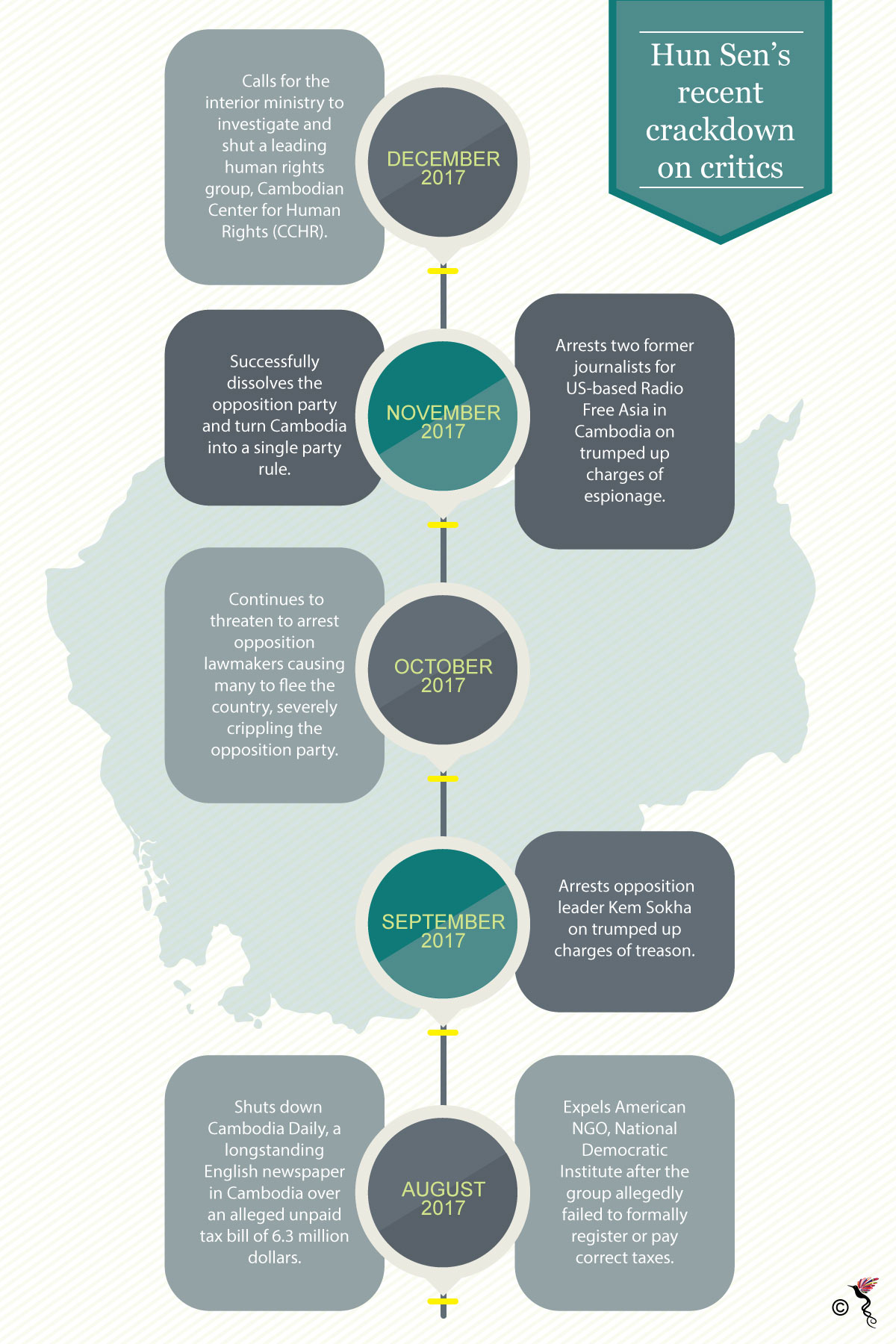
Hun Sen’s recent clampdown on critics and dissidents.
In the wider East Asian neighbourhood, North Korea continues to inflame nuclear tensions. The North, however belligerent it may be, is still a rational actor when it comes to international relations as its primary motive is regime survival. Would ASEAN be able to play “manager” in reducing tensions in the Korean Peninsula, is anyone’s bet.
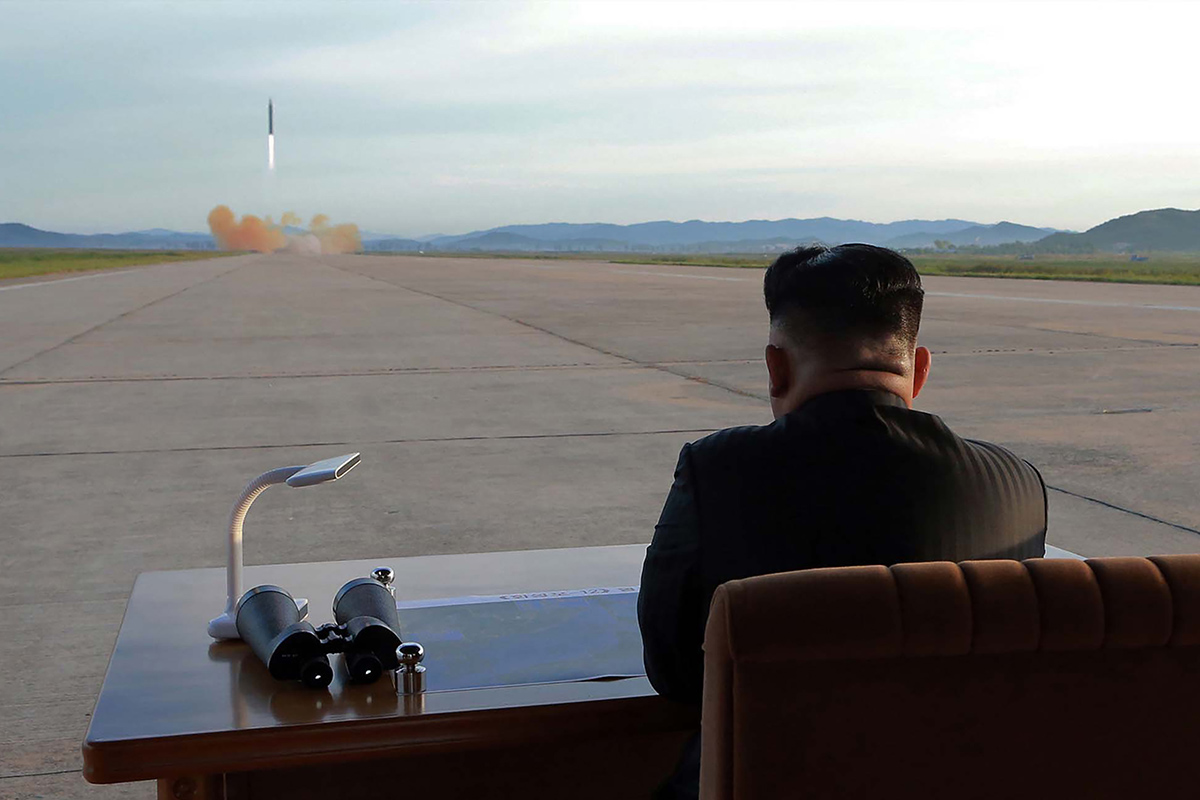
This undated picture released from North Korea's official Korean Central News Agency (KCNA) on September 16, 2017 shows North Korean leader Kim Jong-Un inspecting a launching drill of the medium-and-long range strategic ballistic rocket Hwasong-12 at an undisclosed location. (AFP Photo/KCNA via KNS)
Despite the enormous progress, both politically and economically, freedom of press continues to be a point of contention in Southeast Asia. Hence, many are turning to the internet as a reliable news source. But the government is able to restrict internet freedom as well. The ASEAN Post discusses this dichotomy of freedoms – of the press and of the internet.
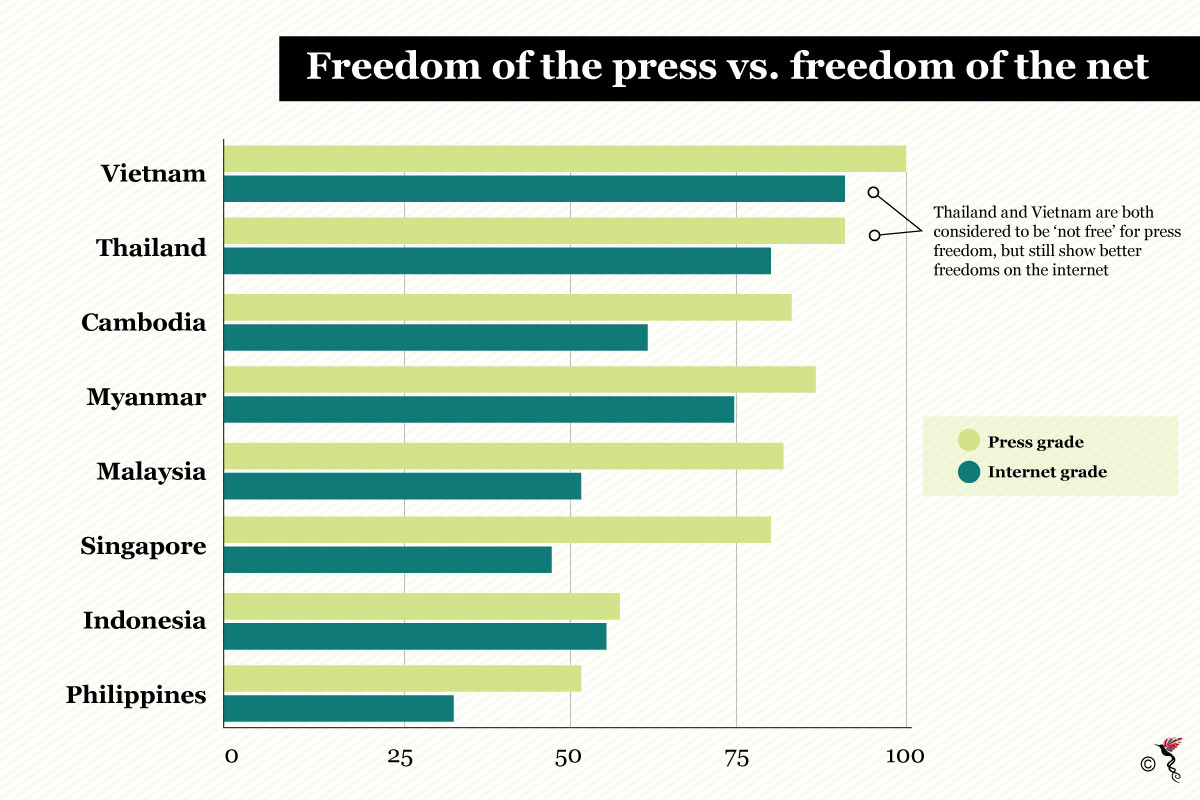
Freedom of press versus freedom of the net.
In collaboration with Project Syndicate, The ASEAN Post brought to readers, an opinion piece written by Elizabeth Drew, a regular contributor to The New York Review of Books and the author, most recently, of Washington Journal: Reporting Watergate and Richard Nixon’s Downfall.
In the op-ed, Elizabeth uncovers the madness of Donald Trump whom she dubs as “King Donald” and asks if America can handle more of “the Donald.”
Recommended stories:
